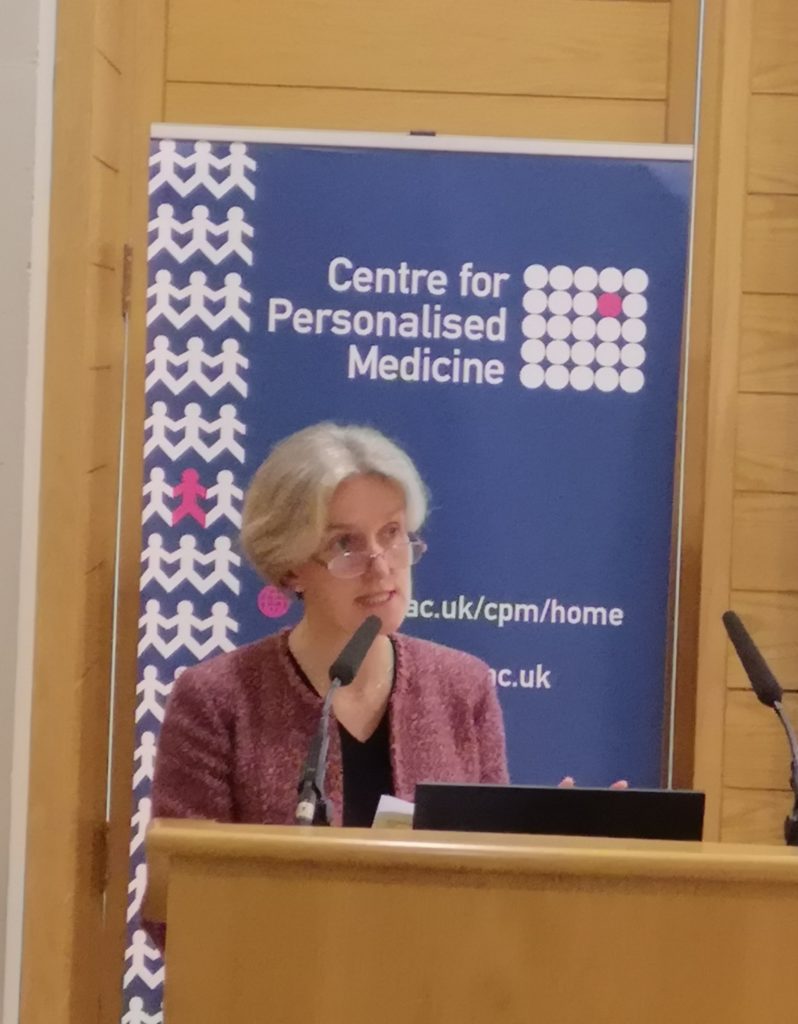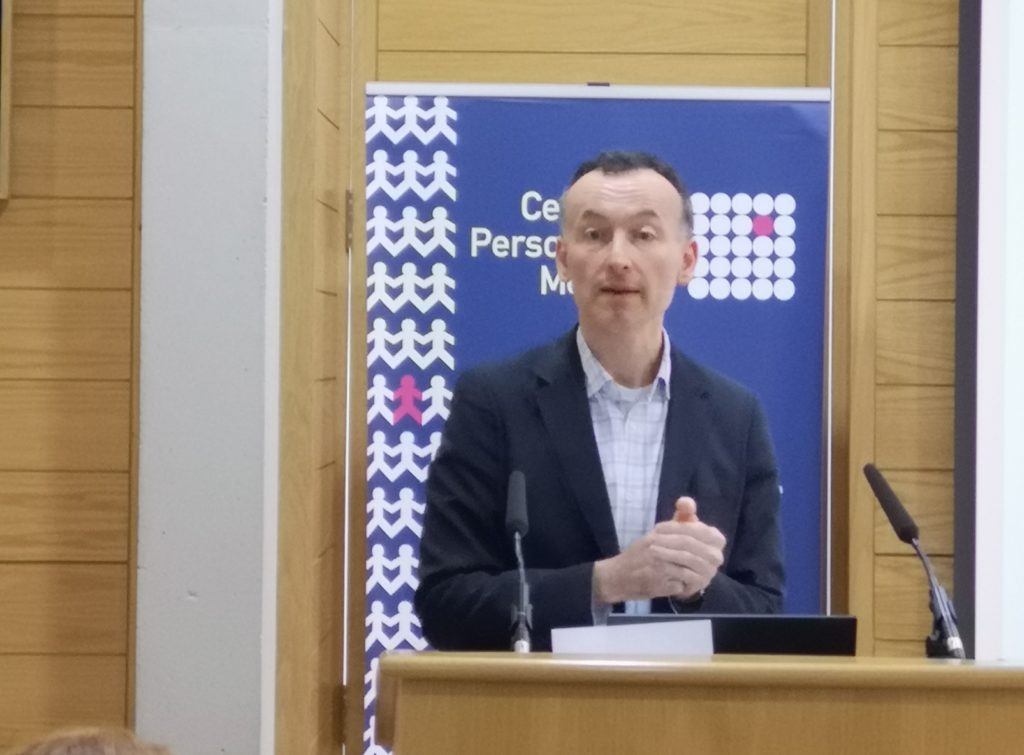Better healthcare, data ownership, ethical and legal considerations and economic impact – the move towards personalised medicine has thrown up a whole range of potentially contentious issues that need to be considered.

These challenges were the focus of an event at St Anne’s College in Oxford, the first of a series of workshops and seminars on personalised medicine.
They are being jointly organised by the NIHR Oxford Biomedical Research Centre’s Partnership for Health, Wealth and Innovation theme and the Centre for Personalised Medicine (CPM) based at St. Anne’s.
Prof Trish Greenhalgh, the BRC’s Theme Lead for Partnership for Health, Wealth and Innovation, said: “Today’s conference brought together the molecular/genomic dimension of personalisation with the human and societal dimension. It has been a great opportunity for interdisciplinary linkages.”
The concept behind personalised medicine is both simple and powerful: delivering the right treatment to the right patient at the right time. This requires both improved scientific knowledge of human disease and illnesses, but also new forms of dialogue, relations and partnerships across healthcare systems.
Alex Rushforth, from the Oxford BRC Partnership for Health, Wealth and Innovation theme, who organised the event, said: “Our aim is to identify major social challenges surrounding personalised medicine and to develop new knowledge, tools, and solutions to tackle them.
“In this series of events we want to explore some of the biggest social challenges facing personalised medicine, including the ethics and social practices of data sharing, the partnerships between university, NHS and industry, how we can implement real change at scale in healthcare systems.”

Prof Nick Fahy spoke about the potential impact of personalised medicine on health systems
The event was opened by Prof Simon Leedham of the CPM and Prof Helen McShane, Director of the Oxford BRC, and the keynote speech delivered by Prof Barbara Prainsack of the University of Vienna, who looked at whether personalised medicine was actually empowering patients – or the opposite.
Oxford BRC academics who spoke to the meeting were Prof Nick Fahy, on Health Policy and Systems Challenges; Prof Ian Pavord, on the need to adopt a more ‘precision medicine’ approach to tackling different kinds of airways disease; and Prof Paresh Vyas, on how our understanding of genetic mutations has led to a more targeted and individualised approach to treating leukaemia and other blood cancers.
Prof Fahy, a specialist in health policy and systems, noted that data is at the heart of personalised medicine, and while the UK has an integrated health system and an excellent research environment, there are questions about whether our health systems are able to manage, share and communicate data to make personalised medicine work.
He said a change in approach to personalised medicine could have implications for drug development and the financing of health systems, since the costs would not necessarily be spread across the whole care system.
A video of the event will be made available in due course.